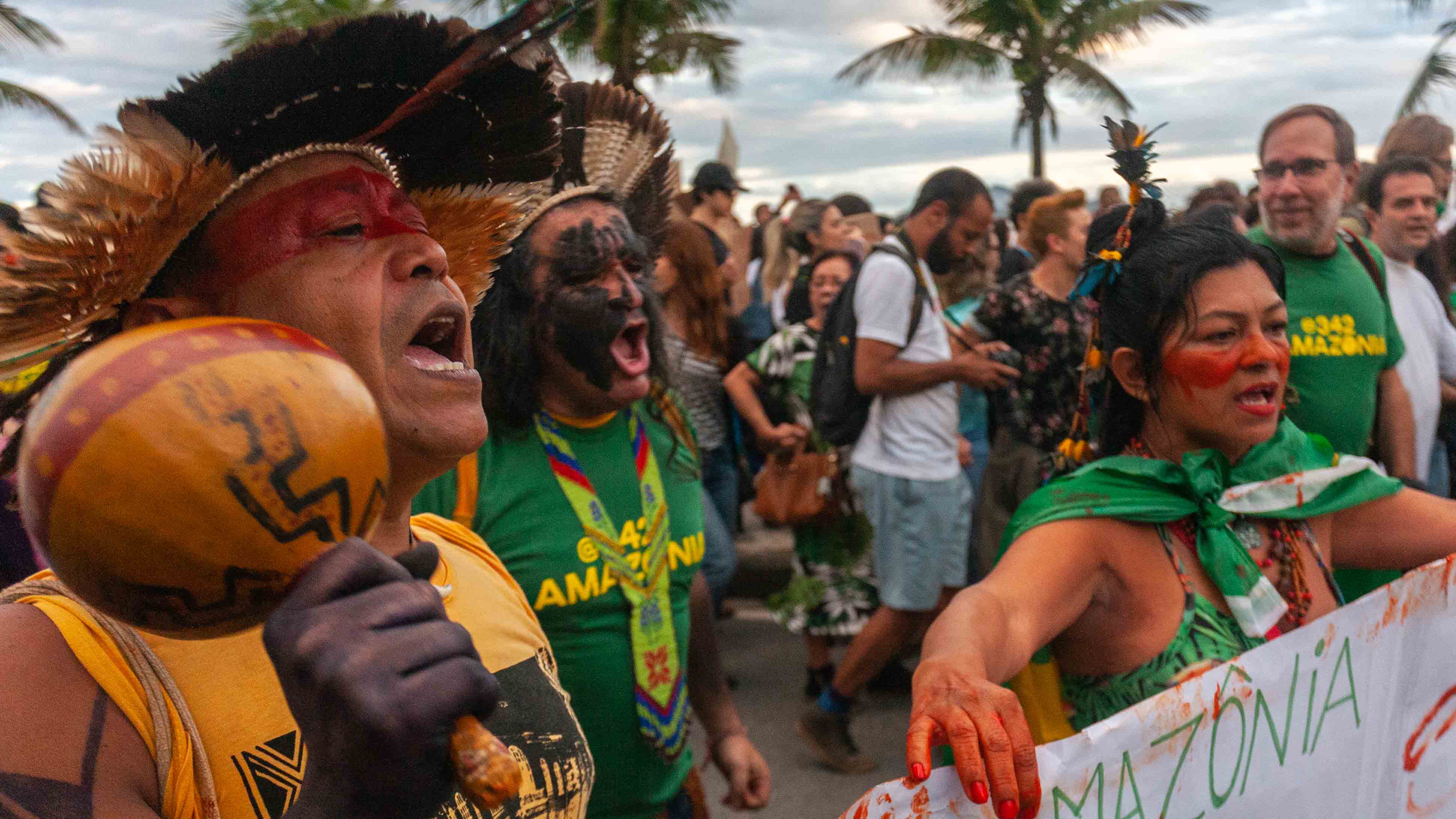The Brazilian election is an opportunity for local philanthropy to show its support for a more just and equitable future for the country. But will elite philanthropists rise to the challenge? In recent years, this elite has done little to challenge Brazil’s structural inequalities, Jessica Sklair (Queen Mary University of London) found.
In the two decades since I first visited Brazil, I have never witnessed a more tense and divisive political atmosphere than that which is currently gripping the country. With just a few days to go before the second round of the presidential election, which will see either the return of former Workers’ Party president Luiz Inácio Lula da Silva (Lula) or the reelection of alt-right incumbent president Jaír Bolsonaro, most Brazilians are loudly nailing their colours to the mast.
Most, that is, except for the group I have been researching over recent years: Brazil’s elite corporate and family philanthropists. Philanthropists’ relative absence from the charged political debate currently raging across Brazil makes this a revealing moment to turn our gaze towards them. What can the ambiguous politics of Brazil’s local philanthropists tell us about the country’s elite philanthropic project and about its elites more widely?
Philanthropy does little to challenge deep-rooted inequalities
In Brazilian Elites and their Philanthropy: Wealth at the Service of Development (Routledge, 2022) I argue that local elite philanthropy in Brazil has largely been based on attempts to better integrate the poor into the existing market structures of the country’s late capitalist system. In this, philanthropy ultimately supports the reproduction and legitimisation of Brazil’s deeply rooted structures of social and economic inequality and elites’ own roles within them.
In practical terms, this has seen Brazilian philanthropic foundations devote most part of their resources to the design and delivery of narrowly conceived programmes in areas such as education, income generation and professional development. Few Brazilian foundations engage in high levels of grantmaking to the organisations and social movements in Brazil’s vibrant civil society sector, which work at the grassroots for real systems change on issues including human rights, racial justice, women’s, indigenous and LGBTQ+ rights, agrarian reform and climate change. In the absence of local funding, these civil society organisations (CSOs) have historically relied on foreign funding instead.
Over recent years, groups such as the Rede de Filantropia para a Justiça Social have made calls for more local grantmaking to Brazilian CSOs. These have had some success, with the emergence of a small handful of new grantmaking foundations across the Brazilian philanthropy sector (see, for example the Instituto Betty e Jacob Lafer and the Instituto Ibirapitanga), but these are still few and far between.
Soon after taking office in 2019, Bolsonaro launched an extended attack on CSOs. Human rights organisations (working across the board of the issues outlined above) and environmental defenders were subjected to a wave of state-sanctioned oppression from supporters of the new government. Quick on the heels of this, CSOs found themselves at the coal face of the Covid-19 pandemic. Bolsonaro’s denial and mismanagement of Covid-19 saw CSOs struggling to support the populations they work for, many of which were disproportionately affected by the effects of the pandemic. Over the last four years, these events have made support for Brazil’s grassroots CSOs more critical than ever, yet few elite Brazilian philanthropists have risen to the challenge. Why have philanthropists, who claim to be working to solve Brazil’s most pressing social and economic problems, not significantly increased their support for these organisations?
Well-served economic interests
In a chapter for the book A Horizon of (Im)possibilities: A Chronicle of Brazil’s Conservative Turn (edited by Katerina Hatzikidi and Eduardo Dullo for the University of London Press in 2021), I argued that most elite philanthropists do not condone the extreme levels of civil society oppression seen under Bolsonaro’s governance. The economic interests of the broader financial elite among which Brazilian philanthropists are to be found have, however, been well served by the orthodox neoliberal policies implemented by Bolsonaro’s Minister of the Economy Paulo Guedes. These have seen new measures for the deregulation and deepening financialisation of the Brazilian economy, which alongside fiscal austerity policies implemented over the last year (despite the continuing economic vulnerability left in the wake of the pandemic) have led to a surge in inequality.
While Bolsonaro’s rule and his response to the pandemic have thus led to a rapid decline in the social and poverty indicators achieved under the Workers’ Party before him, they have also served well the ongoing project of extreme wealth accumulation among the country’s elites, giving the latter little economic reason to seek his removal.
If elite philanthropists were serious about driving social change in Brazil, they could use their power and influence to stage a coordinated public campaign to help remove Bolsonaro from power and advocate for a more equitable and just future for the country.
There are precedents here – the Fundação Tide Setubal, founded by one of the heirs to Brazil’s largest private bank Itaú, has been speaking publicly about the need to dispel misinformation circulating on right-wing social media in the run-up to the election. But this willingness to take a clear political stand is rare across Brazil’s philanthropic landscape.
Brazilian philanthropists’ reticence to take a public stance against the oppression of human rights organisations and environmental defenders, and to countenance the re-election of a president who has openly stated his support for this project, says much about the ideological framework in which most elite philanthropy operates in Brazil. It also sends a worrying message about the interests of the country’s elites (including its philanthropic ones) and what they are willing to tolerate in order to protect them.
Notes:
• The views expressed here are of the author rather than the Centre or the LSE
• Please read our Comments Policy before commenting
• Banner image: Banners supporting Lula da Silva and Jair Bolsonaro in Brazil / Wagner Vilas (Shutterstock)


